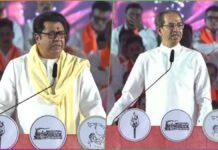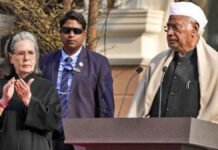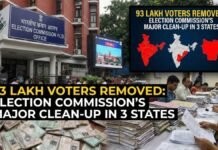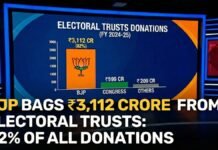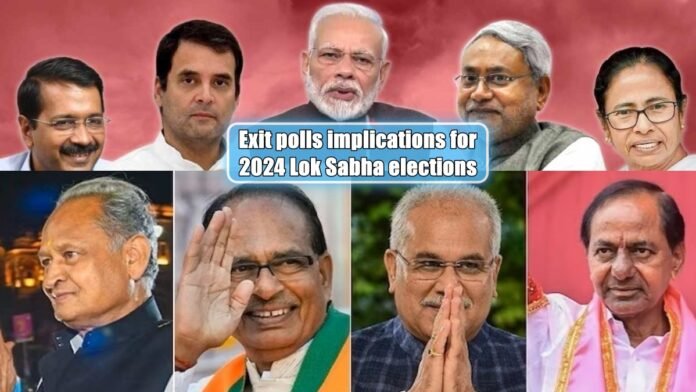
- Exit polls have projected a tight race between the Congress and the BJP in the Hindi heartland states of Rajasthan, Madhya Pradesh, and Chhattisgarh, where the incumbent governments are facing anti-incumbency and other challenges.
- The Congress is likely to retain its hold over Telangana, where it is in alliance with other regional parties against the ruling Bharat Rashtra Samithi (BRS) led by K. Chandrashekar Rao (KCR).
- The exit polls have implications for the 2024 Lok Sabha elections, as they reflect the mood of the voters and the strategies of the parties in the key battleground states.
New Delhi: The assembly elections in Rajasthan, Madhya Pradesh, Chhattisgarh, and Telangana were held in November and December 2023, amid the COVID-19 pandemic and the economic slowdown. These states account for 91 Lok Sabha seats, out of which the BJP had won 76 in the 2019 general elections. The Congress had won only 12, while the BRS had won two and the AIMIM had won one.
The elections were seen as a semi-final before the 2024 Lok Sabha elections, as they tested the popularity of the incumbent governments, the performance of the opposition parties, and the impact of various factors such as the Modi factor, the caste equations, the women voters, and the majority mobilization.
Exit poll projections
The exit polls, which were released after the last phase of polling on December 2, have created an air of anticipation by throwing up a few twists. While individual exit polls have varied in their predictions, the aggregated results have given a broad picture of the possible outcomes. The exit poll projections are as follows:
- Rajasthan: The Congress, which is led by Chief Minister Ashok Gehlot, is facing a tough challenge from the BJP, which is banking on the Modi factor and the factionalism within the Congress. The exit polls have given a slight edge to the BJP, which is expected to win 97 seats out of 200, while the Congress is expected to win 91 seats. The others, including the BSP, the RLP and the independents, are expected to win 12 seats. If the BJP wins, it will break an almost three-decade-long trend of voters booting out incumbents every five years in Rajasthan.
- Madhya Pradesh: The BJP, which is led by Chief Minister Shivraj Singh Chouhan, is facing anti-incumbency and discontent among the farmers and the unemployed. The Congress, which is led by former Chief Minister Kamal Nath, is hoping to regain power with the support of the OBCs, the SCs and the STs. The exit polls have given a narrow lead to the BJP, which is expected to win 121 seats out of 230, while the Congress is expected to win 107 seats. The others, including the BSP, the SP and the independents, are expected to win two seats. The BJP had returned to power in 2019, after the Congress government fell due to the defection of Jyotiraditya Scindia and his loyalist MLAs to the BJP.
- Chhattisgarh: The Congress, which is led by Chief Minister Bhupesh Baghel, is facing a resurgent BJP, which is trying to woo back the tribals and the urban voters. The exit polls have given a close contest, with the Congress expected to win 43 seats out of 90, while the BJP is expected to win 41 seats. The others, including the BSP, the JCC and the independents, are expected to win six seats. The Congress had won a landslide victory in 2018, ending the 15-year rule of the BJP under Raman Singh.
- Telangana: The BRS, which is led by Chief Minister KCR, is facing a united opposition of the Congress, the TDP, the CPI and the TJS, which is called the Praja Kutami (People’s Alliance). The exit polls have given a comfortable majority to the Congress alliance, which is expected to win 83 seats out of 119, while the BRS is expected to win 32 seats. The others, including the BJP, the AIMIM and the independents, are expected to win four seats. The BRS had dissolved the assembly in September 2018, nine months before the end of its term, and had won 88 seats in the snap polls held in December 2018.
Implications for 2024
The exit polls have implications for the 2024 Lok Sabha elections, as they reflect the mood of the voters and the strategies of the parties in the key battleground states. Some of the implications are:
- The BJP will be happy to split the honors (2-2) with the Congress, as it will retain its stronghold in the Hindi heartland and prevent the Congress from gaining momentum. The BJP will also try to consolidate its position in these states by addressing the grievances of the voters and strengthening its organizational base.
- The Congress will be disappointed to lose its grip over the Hindi heartland, where it had hoped to revive its fortunes and challenge the BJP. The Congress will have to introspect on its leadership, its alliance partners, its manifesto, and its campaign strategy in these states.
- The BRS will be humbled by its defeat in Telangana, where it had expected to win a second term with a thumping majority. The BRS will have to rethink its policies, its governance, and its relations with the Centre and the other states.
- The regional parties, such as the BSP, the SP, the RLP, the JCC, and the TJS, will have a marginal role to play in the assembly elections, as they will fail to make a significant impact on the vote share or the seat share. However, they may still have some relevance in the Lok Sabha elections, as they may join hands with either the BJP or the Congress or form a third front.
The exit polls also indicate the strategies that the parties plan to deploy for the grand finale in 2024. Some of the strategies are:
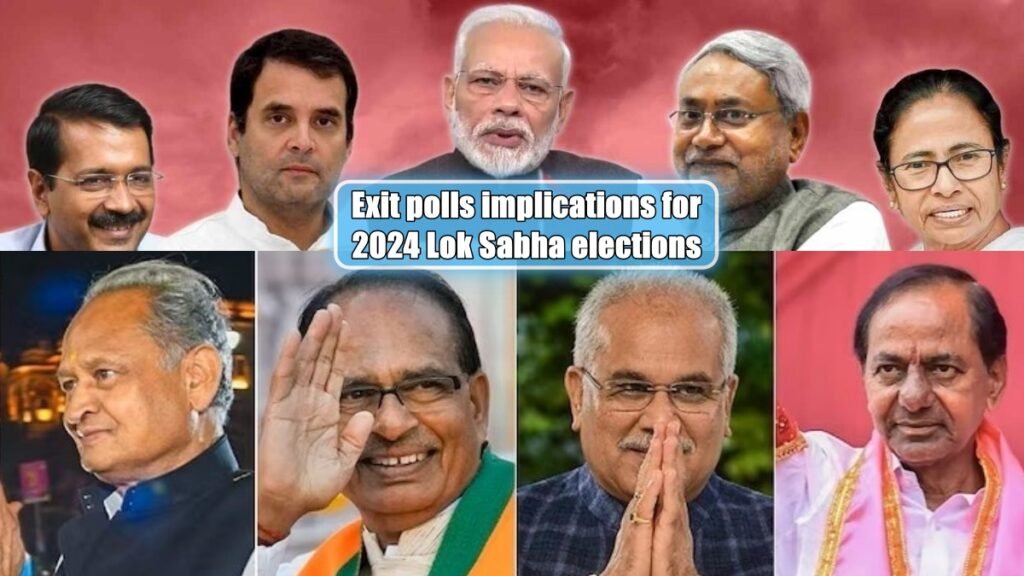
- The Modi factor: The BJP will rely on the charisma and popularity of Prime Minister Narendra Modi, who will be the face of the party and the government. The BJP will highlight the achievements and initiatives of the Modi government, such as the COVID-19 vaccination drive, the welfare schemes, the infrastructure projects, and the national security measures. The BJP will also project Modi as a strong and decisive leader, who can take on the challenges of the 21st century.
- The Mandal (OBC) card: The Congress will try to woo the OBC voters, who constitute a large and influential segment of the electorate in the Hindi heartland and other states. The Congress will emphasize its commitment to the reservation and the empowerment of the OBCs, and will also try to forge alliances with the regional parties that represent the OBC interests. The Congress will also try to expose the BJP’s alleged neglect and betrayal of the OBCs and will accuse the BJP of being a party of the upper castes.
- The Mahila vote: The women voters will be a crucial factor in the 2024 elections, as they have shown a higher turnout and a higher preference for the BJP in the past elections. The BJP will try to retain and expand its support base among women voters, by showcasing its schemes and policies that benefit women, such as the Ujjwala Yojana, the Beti Bachao Beti Padhao Yojana, the Swachh Bharat Mission, and the Pradhan Mantri Awas Yojana. The BJP will also try to protect its women leaders, such as Smriti Irani, Nirmala Sitharaman, Meenakshi Lekhi, and others, as role models and achievers. The Congress will try to counter the BJP’s appeal among the women voters, by raising the issues of women’s safety, women’s education, women’s employment, and women’s representation. The Congress will also try to highlight its women leaders, such as Sonia Gandhi, Priyanka Gandhi Vadra, Mamata Banerjee, and others, as champions and fighters for the women’s cause.
- The BJP’s majority mobilization strategy: The BJP will try to mobilize the majority community, especially the Hindus, by playing up the issues of nationalism, patriotism, Hindutva, and cultural identity. The BJP will also try to polarize the voters along the lines of religion, caste, and region, by portraying the Congress and the other parties as anti-national, anti-Hindu, anti-development, and pro-minority. The BJP will also try to exploit the sentiments of the voters on the issues of the Ram temple, the abrogation of Article 370, the Citizenship Amendment Act, and the Uniform Civil Code. The Congress will try to counter the BJP’s majority mobilization strategy, by appealing to the secular, pluralistic, and democratic values of the Indian Constitution and the Indian society. The Congress will also try to expose the BJP’s divisive and communal agenda and will accuse the BJP of spreading hatred, violence, and intolerance. The Congress will also try to reach out to the minorities, the Dalits, the tribals, and the other marginalized sections, by promising them justice, dignity, and inclusion.




































